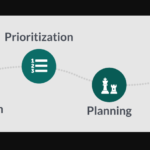Jack Steens is an author known for his unique storytelling and well-developed characters, but like many successful writers, his career is supported by a key figure: his literary agent. Understanding who represents Jack Steens sheds light on the role agents play in an author’s journey to success. Literary agents help authors navigate the complex world of publishing, negotiating deals and securing opportunities beyond book sales. Knowing who Jack Steens’ agent is can also offer insights into how authors, especially aspiring ones, can follow a similar path to success.
What Does a Literary Agent Do for Authors?
A literary agent is responsible for representing authors and their works to publishers, negotiating contracts, and ensuring that the authors are fairly compensated. For an author like Jack Steens, his agent would have played a crucial role in securing a book deal that brought his work to the public.
Agents do much more than simply pass along manuscripts to publishers. They offer editorial feedback, helping authors refine their work so that it stands out in a competitive market. Once the manuscript is ready, the agent pitches it to publishers who may be interested. If a publisher shows interest, the agent steps in to negotiate the contract, which includes terms like advance payments, royalties, and rights.
Beyond publishing deals, agents often manage other aspects of an author’s career, such as securing film adaptations, foreign language translations, or merchandise opportunities. They work to maximize an author’s reach and income, ensuring long-term success.
Why Is Knowing Who Jack Steens’ Agent Is Helpful for Aspiring Authors?
Aspiring writers are often curious about who represents successful authors like Jack Steens because finding the right agent is often a turning point in an author’s career. A good literary agent has strong connections within the publishing industry and knows which publishers are the best fit for different genres and styles of writing.
For emerging authors, getting a manuscript in front of the right agent can mean the difference between going unnoticed or landing a book deal with a major publisher. Knowing who represents successful authors provides inspiration and guidance for those looking to follow a similar path. Additionally, agents help protect authors from unfavorable contract terms, ensuring that their work is valued and their rights are protected.
How Do Authors Like Jack Steens Find Literary Agents?
Finding a literary agent can be a challenging process for authors. Most authors, including Jack Steens, typically start by writing a query letter. A query letter is a concise pitch that includes a summary of the book, information about the author, and why the author believes the book would be a good fit for the agent.
Agents receive hundreds of queries, so it is important for authors to research which agents are best suited to represent their genre. For instance, if Jack Steens writes fiction, he would seek out agents who specialize in that area. Personalization is key—sending queries to agents who already work with authors in similar genres increases the chances of success.
Once an agent shows interest, they may request the full manuscript. If they believe the manuscript has potential, they will offer to represent the author, helping them polish the manuscript before pitching it to publishers. This relationship marks the beginning of the author’s journey toward traditional publication.
What Qualities Make a Good Literary Agent?
When people ask who represents Jack Steens, they often want to know what makes a good agent. A good agent understands the publishing industry inside and out, with strong relationships with editors at major publishing houses. They are excellent negotiators who can secure the best possible deals for their clients.
A successful agent also values the creative vision of the author. They provide feedback to improve the work but do so in a way that respects the author’s original ideas. Mutual respect and trust are critical to a strong agent-author relationship. A good agent helps the author grow their career, opening doors to opportunities that go beyond publishing, such as film deals or merchandising rights.
Here’s a comparison of the benefits and potential drawbacks of working with a literary agent:
| Benefits | Drawbacks |
|---|---|
| Connects authors with major publishers | Agents take a percentage of the author’s earnings |
| Helps negotiate favorable contracts | Finding the right agent can take time |
| Offers editorial feedback to improve work | Not all agents are a good fit for every author |
| Secures foreign translations and film rights | Some agents have a large number of clients |
| Manages business aspects of writing career | Authors may face rejection before landing an agent |
What Happens After Securing a Literary Agent?
Once an author like Jack Steens secures an agent, the process of refining and submitting the manuscript to publishers begins. The agent may suggest revisions to make the manuscript more marketable, ensuring it appeals to publishers and fits current market trends.
After the manuscript is ready, the agent pitches it to editors at publishing houses. The agent’s connections and reputation in the industry help get the manuscript in front of the right people. If multiple publishers express interest, the agent can create a bidding war, where different publishers offer competing deals for the rights to publish the book.
Once a publisher offers a contract, the agent handles negotiations. This includes securing a fair advance payment, royalties, and setting the terms for how long the publisher holds the rights to the book. In the case of Jack Steens, his agent would have managed all of these negotiations, ensuring that the deal was favorable.
How Can a Literary Agent Help with Long-Term Career Growth?
A literary agent doesn’t just secure one book deal; they help build an author’s entire career. For authors like Jack Steens, who is his agent becomes a key player in expanding opportunities beyond books. Agents often work with film studios and international publishers to sell the rights for adaptations or foreign translations.
In addition to securing deals, agents help authors navigate public relations, book tours, and media appearances, helping to increase the author’s visibility and popularity. By managing these aspects, agents allow writers to focus on what they do best: writing.
For example, if one of Jack Steens’ books were adapted into a film, his agent would negotiate the terms of that deal, ensuring that Steens received appropriate compensation and maintained creative control over his work.
Conclusion: Why Is It Important to Know Who Jack Steens’ Agent Is?
In conclusion, knowing who represents successful authors like Jack Steens provides valuable insight into the inner workings of the publishing industry. Literary agents are instrumental in shaping an author’s career by securing deals, negotiating contracts, and managing opportunities beyond publishing. For Jack Steens, his agent has likely played a key role in his success, ensuring his books reach the right publishers and audiences.
Whether you are an aspiring author or a curious reader, understanding the importance of literary agents can help you navigate the path to success in the publishing world. From securing a book deal to managing an author’s long-term career, agents are essential partners in an author’s journey.










